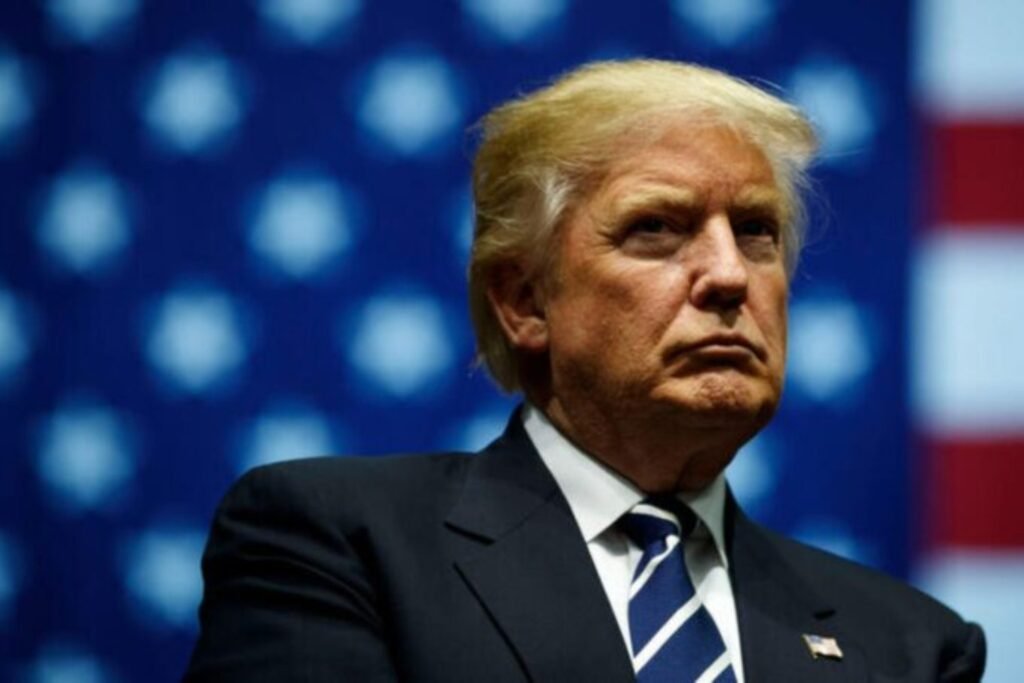Market Volatility in Response to Trump’s Policy Decisions

International stock markets have experienced a recent downturn, sparking concerns among investors and economists. While some signs of recovery are beginning to emerge, uncertainty persists. What has triggered this financial earthquake? And why does it seem like everything depends on one single figure? This article analyzes the hidden causes of this crisis and the possible repercussions that could further shake the global economic landscape.
The immediate impact that paralyzed the markets
The numbers speak for themselves: the Paris Stock Exchange plummeted by 6.19%, London by 5.83%, the Dow Jones by 2.85%, and the Nasdaq by 3.91%. These figures reflect a black Monday for global finances, marked by a panic reaction following a decision that threatens to reshape the international economic map.

What ignited the spark was the decision to drastically increase commercial tariffs for most countries. This measure, driven by former US President, has caused widespread confusion. Investors, companies, and consumers are facing an uncertain environment where economic projections become unreliable.
Market analyst Alexandre Baradez from IG summarizes it clearly: “The markets are under extreme tension. Companies no longer know whether to invest, and consumers are unsure whether to spend or save. This generates a widespread contraction.”
An unprecedented phenomenon: temporary crisis or structural blow?
Experts from Deutsche Bank, cited by AFP, warn that this episode could represent the biggest blow to the global trading system since the collapse of the Bretton Woods agreement in 1971. It is no longer just about momentary falls, but a possible paradigm shift.
And while some companies are directly hit by the stock market turmoil, the real threat is the spread of fear. If losses multiply and no agreement is reached between major powers, the effects could escalate. Entire countries could enter into recession, dragged down by a spiral of inflation, consumption decline, and more.
The question then is: is this just a turbulent phase or are we facing the beginning of a crisis of greater proportions?
Can one person single-handedly disrupt global markets?
What worries specialists is that, on this occasion, everything seems to revolve around one single figure: Donald Trump. Unlike other crises where multiple factors converge, this situation has a centralized origin, making it even more uncontrollable.
Richard Hunter, head of markets at interactive investor, explained to the Guardian: “The volatility we saw in the US market suggests that both a prolonged decline and a rapid recovery are possible. It all depends on what happens with the next tariff measures.”
Many investors are concerned about President Trump’s actions. His announcements have almost immediate impacts on global indices, making the global economy seem to be hanging by a thread. Worse still, retaliations have not been delayed: several countries are already considering responding with equivalent tariffs, which could trigger a large-scale trade war.
Although European and Asian stock markets have started to show signs of stabilization, the outlook remains highly uncertain. Recovery will depend not only on political decisions but also on the emotional state of the markets, which have proven to be particularly sensitive to any unexpected statement or movement.
The immediate economic future is filled with uncertainties. No one can guarantee whether the storm will subside soon or if we are just at the beginning of a larger hurricane. What is evident for now is that the financial pulse of the world seems to be controlled by a single hand.
The question on everyone’s mind is: who will have the power—or the will—to put an end to this global tension before it is too late?




